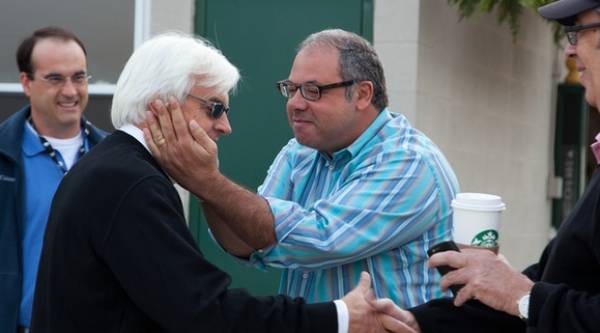While Judge Dismisses Zayat Gambling Case, NY Times Still Questions His Ethics

A Newark Judge may have thrown out a well-publicized lawsuit alleging American Pharoah’s owner owes over $1.65 million in gambling debts, but that hasn’t stopped one of the most respected New York (and the world) newspapers from questioning Ahmed Zayat’s ethics. They also suggest he has caught the attention of regulators due to a series of missteps.
American Pharoah is looking to become the first horse to win the Triple Crown in nearly 40 years. But fans at the Belmont Stakes may be looking instead to the skies.
Gambling911.com reported exclusively on Wednesday that high ranking sources have been advised of a plan to fly banners over the Belmont Racetrack Saturday denouncing Zayat.
“They will finalize their plan by tomorrow (Friday),” a source revealed to Gambling911.com Thursday evening.
The New York Times report, while flattering towards Zayat at times, is mostly damning, especially when it comes to the part about “A Trail of Debts”.
Horse racing has long been a business in which contracts are preferred but handshakes are accepted, and slow pay is better than no pay. In 2010, when Zayat Stables filed for bankruptcy protection, court filings provided a window into how much it was costing Mr. Zayat to stay on top of the owners standings.
Besides leaving a who’s who of the thoroughbred industry waiting to be paid — including Keeneland, the auction company; breeding farms owned by the ruler of Dubai, Sheik Mohammed bin Rashid al-Maktoum; trainers; and horse transportation vendors — the lawsuit also made claims of Mr. Zayat’s prodigious gambling habits and poor track record of paying his bills.
Fifth Third Bank said Zayat Stables had defaulted on more than $34 million in loans it made to Mr. Zayat while his stable lost more than $52 million from 2006 to 2008. It also claimed that Mr. Zayat did not disclose a previous personal bankruptcy under the name Ephraim David Zayat and that he withdrew more than $2 million from stable accounts, in addition to a salary of $650,000, in the year before the bankruptcy filing.
There are farms and vendors in Kentucky that will no longer do business with Mr. Zayat, including Stockplace Farm, where American Pharoah was foaled, and Taylor Made Farm, where he stayed for months before the Saratoga Sale. Still others demand cash upfront.
Mr. Zayat said he has been “extremely generous” to the people who say that he does not pay his bills.
Of his penchant for gambling, he is unapologetic. He said he bets a lot because he can afford it.
“I like gambling on horses,” he said. “Everybody has a different wallet size.
He also said he bet on occasion to generate cash flow for the stable. “It’s called hedging,” he said.
Sometimes his gambling has brought unintended scrutiny. A 2013 suit filed by the owners of Freehold Raceway against the New Jersey Sports and Exposition Authority claimed that Mr. Zayat was improperly granted credit in the state’s online betting system.
New Jersey law prohibits betting more money than is in the account, but court papers show Mr. Zayat was allowed to float $286,000 for several months as a courtesy because he was betting $200,000 a week and put more than $9 million in play through its pools.
The court filings also show that one check for $100,000 from Mr. Zayat to the sports authority was returned for insufficient funds.
Jagajeet Chiba, Gambling911.com














